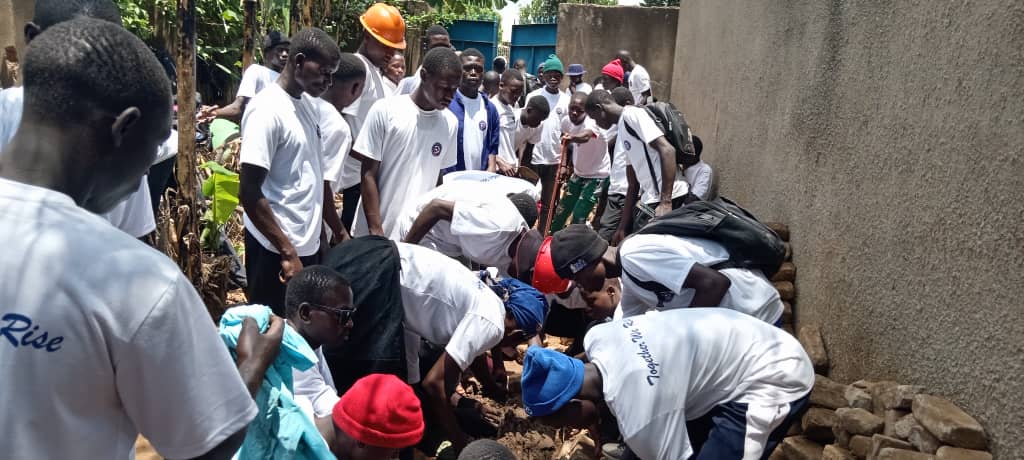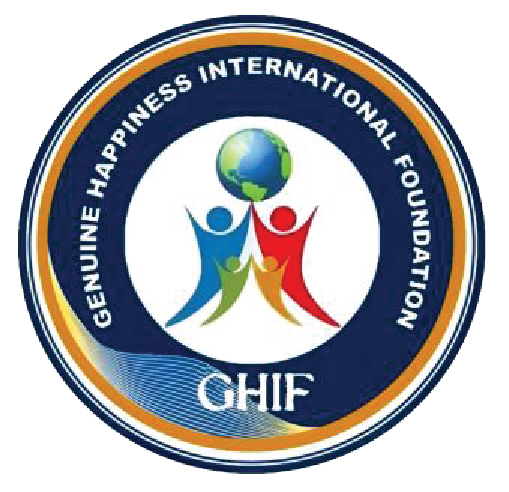
http://The Plight of Youth Who Dropped Out of School The Plight of Youth Who Dropped Out of School
In communities across Uganda, countless young lives are interrupted—not by choice, but by circumstance. When poverty knocks early, school becomes a distant luxury. And when social issues creep in—early marriage, domestic instability, or the need to earn a daily meal—education fades silently from the picture.
For many youth, dropping out isn’t about giving up. It’s about survival. It’s the weight of walking past school gates knowing the fees can’t be paid, of trading notebooks for bricks, and of dreams being postponed without permission.
But in that silence, resilience stirs.
At GHIF, we hear those stories—the ones rarely told but often lived. Youth who teach themselves to stitch under candlelight. Girls who swap chalkboards for caregiving. Boys whose talent is buried under layers of shame. We believe these stories are not endings—they are beginnings waiting to be recognized.
By equipping these young people with vocational training, mentorship, and the dignity of being seen, GHIF transforms statistics into stories of hope. Every skill taught, every story shared, chips away at systemic exclusion—and builds a bridge toward futures that should never have been denied.
The Youth in Uganda living in Poverty who did not return to school after the Covid-19 lockdown?
They are the resilient ones—whose names may not appear in statistics, but whose lives echo the aftershocks of a global crisis. In Uganda, thousands of youth were forced out of school when the COVID-19 lockdown hit. And when doors finally reopened, not all could walk back through.
Many come from families where survival takes precedence over schooling. Daily meals became uncertain, household responsibilities doubled, and the cost of returning—school fees, uniforms, learning materials—became too steep to climb. Some entered informal work to support younger siblings. Others faced early marriages, teen pregnancies, and systemic stigma that left them feeling school was no longer “for them.”
These youth live in rural villages, urban settlements, and street-connected communities. But they also live in silence—overlooked by systems, underrepresented in policy. They are bright, capable, and still dreaming. What they need is not sympathy, but access.
Genuine Happiness International Foundation sees them—not just as youth who dropped out, but as change-makers waiting to rise. Through vocational training, mentorship, and storytelling, we help rewrite their narrative—not as victims of circumstance, but architects of resilience.
How many did not return to school after the Covid-19 lock-down?
Uganda experienced the world’s longest school closure, lasting nearly two years. When schools finally reopened in January 2022, the impact was stark: around 1 in 10 school-aged children did not return to class. But the numbers may be even higher.
According to Uganda’s National Planning Authority, up to 30% of children were at risk of dropping out due to the pandemic’s fallout. This includes rising poverty, early marriages, teenage pregnancies, and the need for children to take on work to support their families.
The dropout crisis wasn’t just about lost learning—it was about lost futures. Many youth who left school during lockdown never returned, not because they lacked ambition, but because the cost of re-entry—school fees, uniforms, stigma—was simply too high.
At GHIF, we see these youth not as statistics, but as potential waiting to be reignited. Through vocational training and mentorship, we offer a second chance to those who were left behind—because no child should be denied education by circumstance.
What challenges did they face?
After the COVID-19 lock-down, youth in Uganda who couldn’t return to school were met with layered, compounding challenges. Economic hardship forced many into informal labor, caregiving, or street-based survival, making school unaffordable and secondary to daily survival. Girls were especially vulnerable to teenage pregnancy and early marriage, and once school doors reopened, many faced stigma and lacked support to return. With limited access to online learning during lockdown—particularly in rural areas—learning gaps widened, confidence waned, and motivation faltered. The academic nature of Uganda’s education system, which prioritizes examination performance, offered little room for non-traditional learners or vocational pathways. Even youth who longed to return were met with structural barriers: unpaid fees, missing uniforms, emotional distress, and societal judgment. These challenges didn’t just block education—they fractured futures. Genuine Happiness International Foundation steps into this gap with training, mentorship, and advocacy, showing that exclusion is not the end, but a new beginning.
What does Genuine Happiness International Foundation do for them?
Genuine Happiness International Foundation stands at the crossroads where hope meets action. For youth who were pushed out of school by poverty, family challenges, or the long shadow of the COVID-19 lockdown, we offer more than sympathy—we offer possibility.
We create safe learning spaces where skill replaces stigma. Whether it’s tailoring, carpentry, metalwork, or digital literacy, our vocational programs provide hands-on training that leads to real-world opportunities. These aren’t just courses—they’re doorways back into dignity.
But we don’t stop at skill. Genuine Happiness International Foundation offers mentorship, encouraging youth to reclaim their dreams and rewrite their narratives. Our programs like Voices That Build ensure their stories are heard—not just whispered within communities, but amplified as evidence of resilience and transformation.
We partner with families, communities, and alumni to build support networks that last. Through health outreach, gender-inclusive training, and storytelling campaigns, we ensure that each young person isn’t just skilled—but seen, supported, and celebrated.
Genuine Happiness International Foundation isn’t just a training centre. It’s a movement where youth shift from surviving to thriving. We believe that education, in any form, is power—and that even those excluded from formal school deserve every chance to shape their future.

